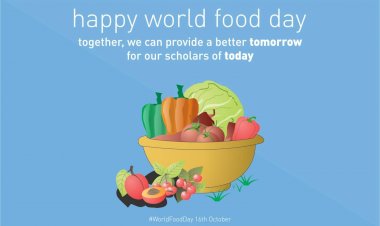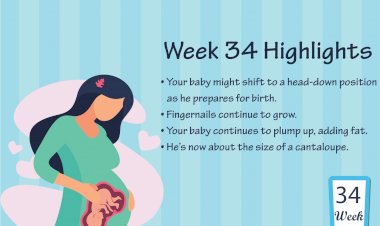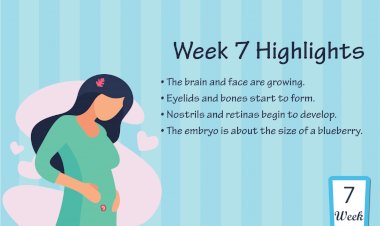Diet during 2nd trimester of pregnancy

A Pregnant woman needs an adequate nutritious diet, sufficient rest, sleep and Iron, Folic Acid tablets throughout the pregnancy and Immunization.
Diet Nutrition deserves special attention during pregnancy and breastfeeding because of the high nutrient needs and the critical role of appropriate nutrition for the fetus and infant. Physiological adaptations during pregnancy partly shield the fetus from inadequacies in the maternal diet, but even so, these inadequacies can have consequences for both the short and long-term health and development of the fetus and infant.
Few people eat exactly the same way each day and it is common to have a little more on some days than others. However, on an average, the total of your portion sizes should end up being similar to the number of serves you need each day. If you eat portions that are smaller than the ‘serve size’ you will need to eat from the Food Groups more often. If your portion size is larger than the ‘serve size’, then you will need to eat from the Food Groups less often.
It’s helpful to get to know the recommended serving sizes and serves per day so that you eat and drink the right amount of the nutritious foods you and your baby need for health.
Diet Details:
Whole gram, pulses and legumes, sprouted pulses, dark green leafy vegetables, jaggery, dates, and groundnuts, gingerly seeds are foods of plant origin having good iron content. These may be included in the daily diet. Consume IFA tablets along with iron-rich foods to prevent anaemia.
Include green leafy vegetables in daily diet right from the beginning as all foliage provide ‘folic acid’ much needed during early months.
Consume one seasonal fruit daily. Take fruits like amla, oranges, guava, and lemon as it helps in iron absorption. Consume milk & milk products like curd, buttermilk. If possible consume egg, meat & fish.
Iodized salt should be consumed as pregnant women require sufficient iodine for brain development of the child in the womb. Take plenty of fluids/water. Take small and frequent meals.
Basic Precautions:
Pregnant and nursing women, infants, preschool children and the elderly have particular needs that require special care in selecting, storing and preparing food.
- Always wash your hands before touching food or water.
- Wash all vegetables and fruit thoroughly.
- Avoid touching farm animals.
- Boil water for one minute at rapid boil if you are not sure of the source and store in a clean, closed container or use bottled water.
- Cook all meat, fish, and eggs completely before eating in a hygienically prepared kitchen.
- Use only pasteurized milk and dairy products.
- Thaw all foods in the refrigerator and not at room temperature.
- Keep shelves, countertops, other kitchen utensils, sponges and towels clean at all times.
- Use different cutting boards for foods intended to be served raw than for foods that will be cooked.
- Exercise caution consuming foods or beverages out of home or when traveling.
FOODS TO AVOID
Pregnant women should avoid:
- Foods which may contain listeria bacteria like soft cheeses (brie, camembert, ricotta, feta and blue cheese), sandwich meats, bean sprouts, pre-prepared salads and pâté.
- Raw eggs as they may contain salmonella.
- Alcohol – not drinking is the safest option.
- Fish that may contain high levels of mercury
- consuming no more than one serve (100g cooked)per fortnight of shark/flake, marlin or broad bill/swordfish, and no other fish that fortnight or one serve (100g cooked) per week of orange rough(deep sea perch) or catfish and no other fish that week.
- Foods such as nuts during pregnancy only if they are allergic to the foods themselves – avoiding these foods has no impact on the infant’s risk of developing allergy symptoms.
- Avoid processed cold meats or deli meats unless they are reheated until steaming hot.
- Avoid soft cheeses such as feta, Brie, Camembert and blue-veined cheeses unless they are labeled. As made with pasteurized milk. Hard cheeses, semi-soft cheeses such as mozzarella, pasteurized processed cheese slices and spreads, cream cheese and cottage cheese can be safely consumed.
- Avoid eating refrigerated pâté or meat spreads. Canned or shelf-stable pâté and meat spreads can be eaten.
- Avoid eating refrigerated smoked seafood unless it is an ingredient in a cooked dish such as a casserole.
To remember while 2nd trimester of pregnancy
- It is important that woman should gain 10-12 kg weight during pregnancy.
- Avoid tea, coffee or taking tobacco especially within 1 hour of a meal as it interferes with iron absorption.
- Refrain from chewing or smoking tobacco during pregnancy and after delivery
- Heavy work should be avoided throughout the pregnancy.
- Rest (in lying down position) is important to enable an adequate flow of nutrients from mother to the child. Two hours rest in addition to sleep of 8 hrs during the daytime.
- IFA tablets should be consumed during pregnancy (daily one tablet for 100 days).
- A single dose of 400 mg of albendazole is recommended during 2nd trimester of pregnancy.
- The pregnant woman should be given two doses of tetanus toxoid (TT) at an interval of 4 weeks.
- Avoid any misconception and common myths about any food.
- Avoid Semi-ripe papaya during pregnancy.
- Avoid consumption of alcohol and cigarette smoking during pregnancy & after delivery.








































Comments (0)